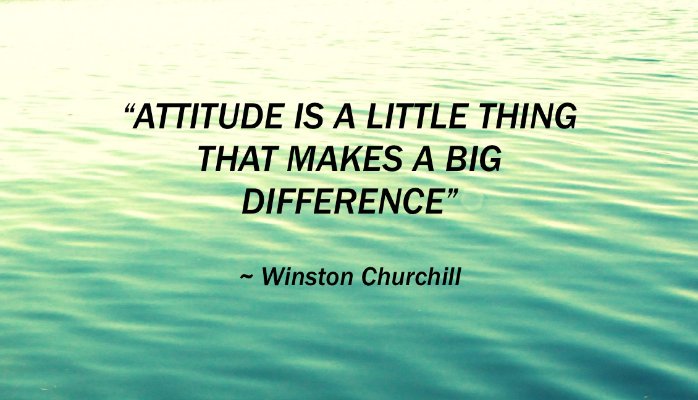Mindfulness is usually seen as something we do or attain. We become more mindful of the present moment, or we try to achieve a better sense of calm and relaxation. But the ability to bring certain kinds of attitudes to the practice is equally important and often overlooked. An attitude can be described as a way of thinking or feeling about someone or something, and is typically reflected in a person’s behaviour. Practicing mindfulness can change some of our attitudes helping us transform our lives. Here are some attitudes that we can consciously work to attain.
Non-Judgment
Judgments are very useful, so why would we want an attitude of non-judgment? In part, mindfulness requires that we pay attention to the steady stream of judging and reacting that we have towards our experiences and step back. To quote Jon Kabat-Zinn: “This habit of categorizing into good and bad or positive and negative locks us into mechanical reactions that we are not even aware of and often have no objective basis at all.” In other words, habitually liking or disliking something prevents us from truly seeing it or experiencing it. To suspend judgment means we open our minds.
Patience
In a consumer society of instant gratification like ours, it is easy to lose the ability to be patient. In fact, patience is an attitude that one has to persistently cultivate. It’s hard to be patient, especially if we are driven by moods and emotions. Learning to be silent with one’s own thoughts can help create time to let things develop naturally. Some aspects of life unfold on their own time, which an attitude of patience helps us to understand.
Beginner’s Mind
Most mindfulness attitudes build on each other. For example, with a less judgmental attitude, we learn to be more open-minded and see with what the Buddhists call “a beginner’s mind.” It refers to having an attitude of openness and eagerness in whatever we do. If we approach life as if for the first time, the energy and enthusiasm of our actions can feel renewed.
Non-Striving
Just like non-judging, non-striving feels counter-intuitive. But learning when to pull back is key to not feeling burnt out. Meditation is an exercise in non-striving, it can feel like it accomplishes nothing, but it teaches us how to unplug. We can be so focused on achievement that we almost forget how to relax. More importantly, not trying too hard goes hand in hand with being patient and trusting that things will unfold on their own time.
Letting Go
One could argue that letting go is more of an action than an attitude, but because an attitude ultimately is reflected in a person’s behaviour, letting go begins with a certain way of thinking or feeling. When we focus on our subjective experience, we become aware that the mind wants to hold on to certain feelings, thoughts or situations. Awareness of this habitual inclination, applying other attitudes such as non-judgment, patience, and non-striving, helps dislodge this tendency, creating a willingness to let go and ultimately leading to a more flexible attitude.
Generosity
It is paradoxical that the more you give, the more you get back, although it’s important to note that we don’t always receive in kind, we receive in other ways. Studies show a consistent link between demonstrating generosity and leading a better life. More generous people are happier, suffer less illness and live with a greater sense of purpose. Developing a generous attitude can go a long way to not only make other people’s lives better, but also our own.
For upcoming Mindfulness Events and workshops please visit:http://mindsana.com/events/categories/transforming-emotions/ or visit our website: www.mindsana.com for tips and guided meditations.

